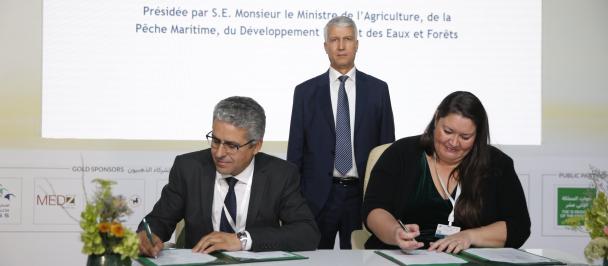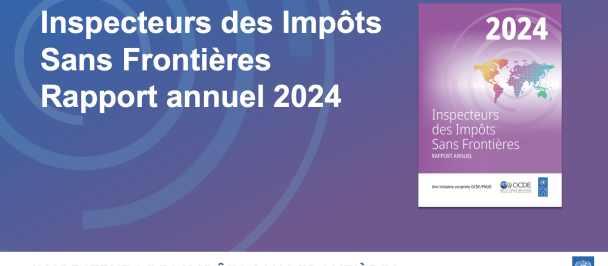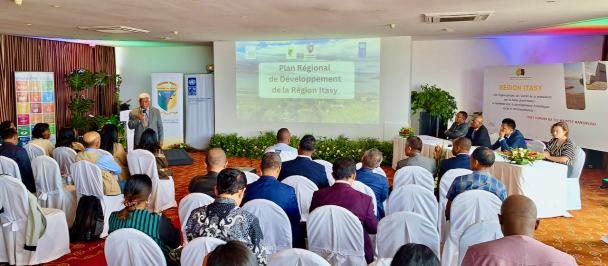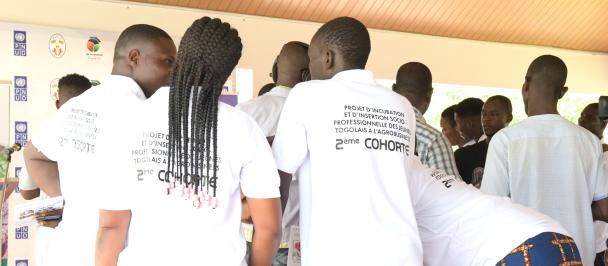Disaster Risk Management: UNDP Launches Diagnostic Study on Inclusive Insurance and Risk Financing in the Comoros
2 avril 2024
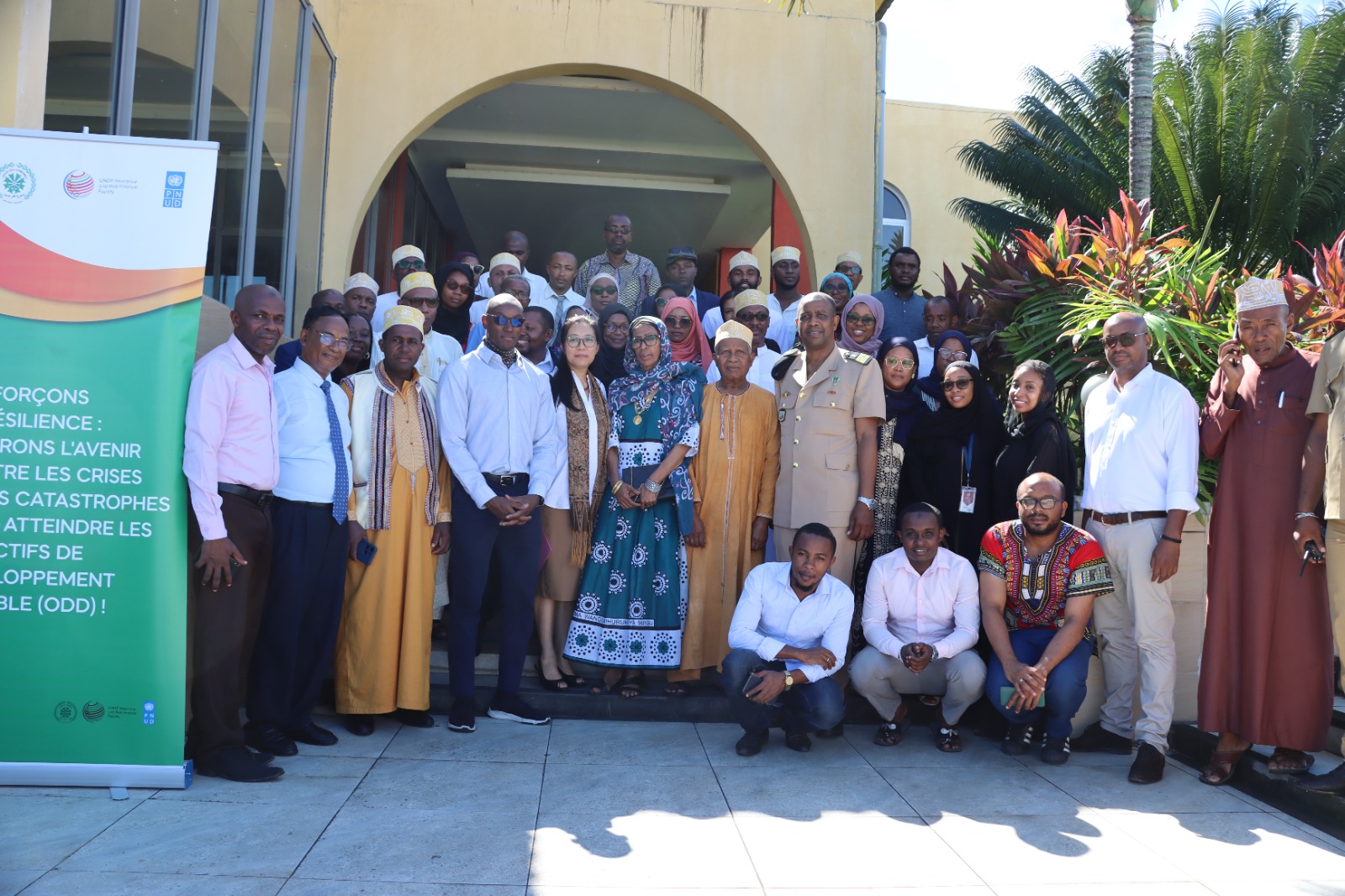
The United Nations Development Programme (UNDP) organized a workshop on the diagnostic study related to inclusive insurance and risk financing in the Comoros. This marks a crucial step in introducing the Insurance and Risk Finance Facility and engaging stakeholders in discussions on mechanisms to strengthen insurance coverage and financial capacities of the country in the face of all types of disasters.
To guard against climate change-related disasters, the Union of the Comoros is devising proactive measures to enhance its economic and social resilience. In this regard, UNDP, in collaboration with Milliman, held a workshop to launch the diagnostic study on inclusive insurance and risk financing in the Comoros. This workshop brought together key stakeholders including the General Directorate of Civil Protection, financial institutions, government representatives, private sector actors, and civil society to implement innovative solutions to finance risks and insurance in the country.
It is observed that the Comoros are among the most vulnerable countries to natural disasters and climate change, negatively impacting its development and exacerbating existing vulnerabilities. Recent cyclones, floods, landslides, and volcanic eruptions have significantly affected the country's growth, causing substantial financial and human losses. For instance, Cyclone Kenneth in April 2019 affected 345,131 people (40% of population), including over 185,000 severely, destroying critical infrastructure and leaving entire communities vulnerable amounting to a total loss of $.185,4.million. In April 2012, floods, landslides, and mudslides affected approximately 64,987 people, constituting 9% of the population, leading to significant material damage and economic setbacks.
In response to these realities, the Comorian government has had to mobilize substantial resources to meet immediate reconstruction needs, resulting in considerable economic setbacks. Thus, risk financing and insurance emerge as crucial solutions for the Comoros. Hence, the idea of launching this major initiative seeking to address these critical challenges alongside strategic partners.
Present at the event, UNDP Deputy Resident Representative Vera Hakim informed that the Insurance and Risk Financing Facility (IRFF) seeks to provide innovative protection solutions in 50 developing countries by 2025. Currently, the Facility is operational in 34 countries.
"We support the development of innovative insurance products and services for vulnerable individuals and communities while also investing in the long-term transformation of insurance markets. The Fund's work goes beyond insurance supply and demand. It examines legislation, regulatory and institutional capacity development, and invests in advocacy, training, and education. Additionally, the IRFF adopts an inclusive approach that promotes gender equality in strengthening resilience. By reducing structural barriers and promoting individual empowerment, the IRFF is committed to promoting gender equality through its risk financing and insurance policies and solutions. This approach is based on the recognition that women are often the most affected by disaster and climate change risks. By integrating a gender perspective into its initiatives, the IRFF aims to create more equitable and inclusive systems, thereby contributing to better risk management and the building of more resilient communities," she emphasized.
On his part, the Director-General of Civil Protection noted that recent events remind us of the importance of strengthening our capacity to anticipate, prevent, and manage natural disaster risks. He took the opportunity to announce that the Union of the Comoros has subscribed to the African Risk Capacity for parametric insurance against tropical cyclones. This subscription, amounting to $500,000 with a coverage limit of $11,519,700, demonstrates our commitment to protecting our populations and infrastructure against climatic hazards. He thanked the Minister of Finance for his personal commitment to this project.
In order to strengthen the management of this issue, the sector has adopted a national policy, contingency plan, and sectoral plan, and numerous actions have been undertaken as part of various projects to enhance technical, material, and financial capacities and promote the sector's visibility at the national and sub-regional levels. Despite all these efforts, the sector still faces significant challenges, including those related to disaster financing mechanisms.
"Thus, the diagnostic study we are launching today is a crucial step in our approach. It will allow us to better understand the risks we face and identify the most effective solutions to address them. By working together, I am convinced that we can overcome these challenges and protect our communities," added Colonel Abdallah Rafik.
In her opening remarks, the Secretary-General of the Ministry of Finance, Sitti Salim, explained that over the years, our nation has faced major challenges in managing natural disaster risks, highlighting the urgent need to strengthen our capacity to anticipate, prevent, and manage these risks. "Today, we gather with determination to develop innovative and effective solutions that will protect our vulnerable communities and ensure swift recovery after a disaster," she stated.
The UNDP expert, in charge of regional support for Africa, Pap Talla, clarified during his intervention that this is an insurance and risk financing mechanism that will bring together all the different public and private actors, as well as civil society, working closely or remotely on insurance and financial inclusion issues and the protection of vulnerable populations from a technical, financial, regulatory, or organizational perspective.
"The idea is to bring together all key actors, present the work we are doing, highlight the problems identified in the Comoros and potential solutions, and lay the groundwork for the work to be done in the coming months, resulting in an action plan to work on risk and disaster management in the Comoros," he said.
This workshop also addressed the issue of debt. The absence of an insurance and risk financing mechanism, further puts the state in a fragile situation and at risk, where the State is obliged to take more debts during a crisis or epidemic and further decreasing fiscal space.
This meeting will be followed by a series of regular consultations to deepen the analysis of challenges and identify priority solutions that will be reflected in the final diagnosis. This will feed into the action plan in this area. UNDP, through the IRFF and with funding from Germany, is committed to supporting the Comoros in achieving the Sustainable Development Goals by focusing on protecting vulnerable populations and ecosystems.

 Locations
Locations